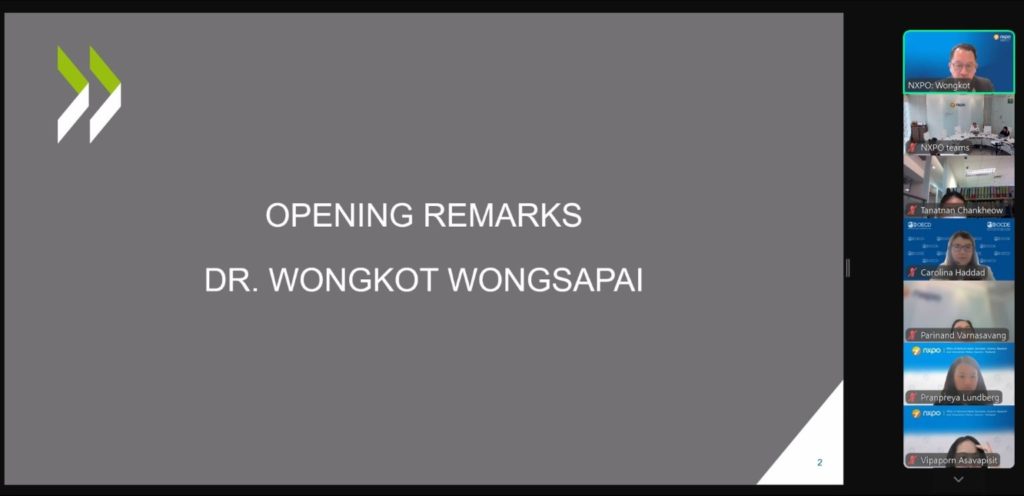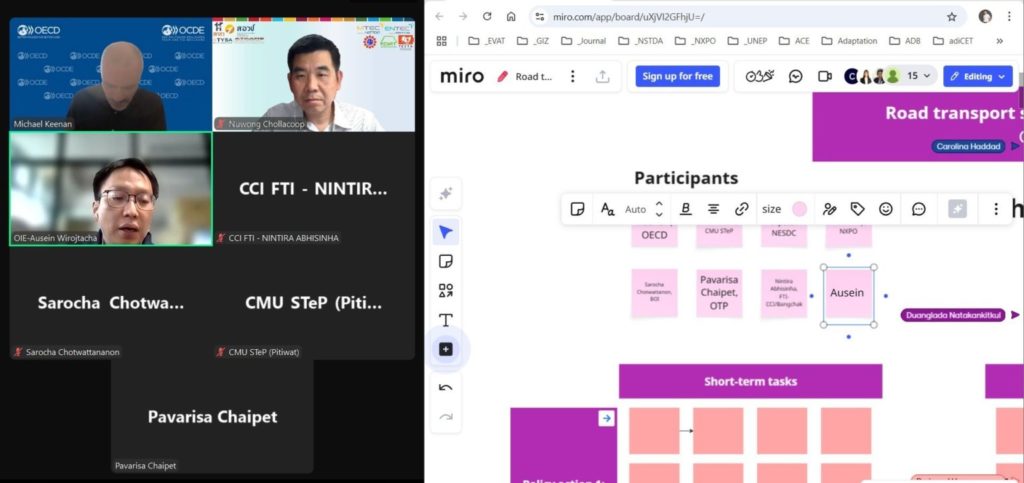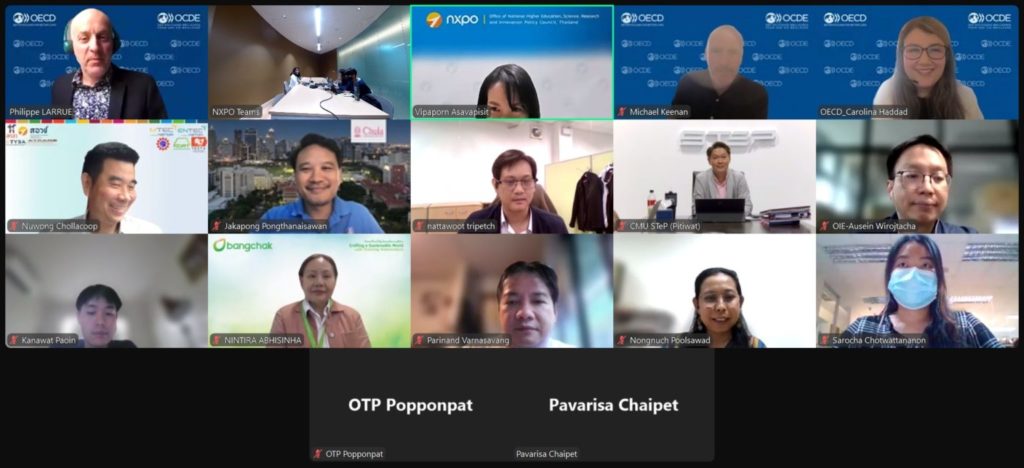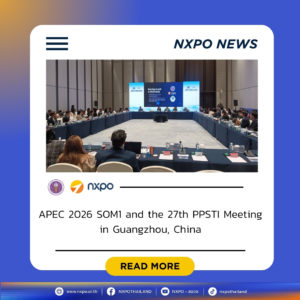NXPO, in collaboration with the Division of Science and Technology Policy under the Directorate for Science, Technology and Innovation of the Organisation for Economic Co-operation and Development (OECD), organized a workshop on “STI Strategy for Carbon Neutrality and Transitions.” The workshop is part of an ongoing collaborative project between Thailand and the OECD, aimed at promoting sustainable transitions in the road transport, power, and agriculture sectors through science, technology, and innovation (STI).

The sessions on road transport and agricultural sectors were opened by Assoc. Prof. Wongkot Wongsapai, Vice President of NXPO. He highlighted the workshop’s objective to formulate actionable STI policies focusing on four key areas: mobilizing funding, strengthening inter-agency coordination, promoting international collaboration, and building skills and innovation ecosystems to support the transition.

In the power sector session, Dr. Nuwong Chollacoop, Assistant to the President of NXPO, welcomed participants and provided an overview of previous activities, including online interviews and a workshop conducted in January. He noted that the current workshop builds upon these earlier efforts to advance policy development.

Throughout the event, representatives from government agencies, the private sector, and academic institutions exchanged knowledge, shared sector-specific challenges, and offered insights that will serve as a foundation for formulating action plans and policy recommendations.




This STI Strategy for Carbon Neutrality and Transitions project is part of the Thailand–OECD Country Programme Phase II, designed to support Thai policymakers and stakeholders in developing inclusive STI policy recommendations that contribute to Thailand’s carbon neutrality and sustainable development goals. The initiative focuses on three high-emission economic sectors: road transport, power, and agriculture.







